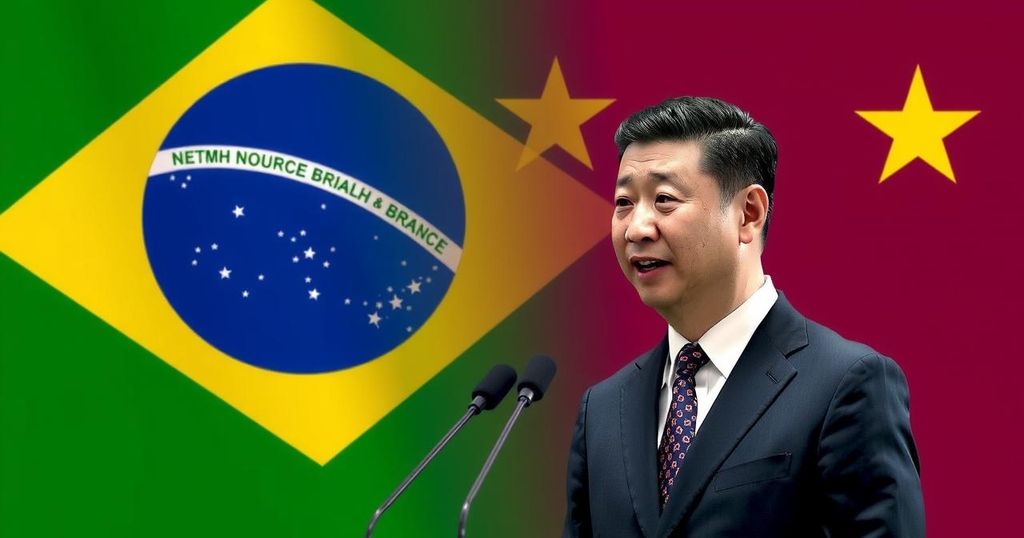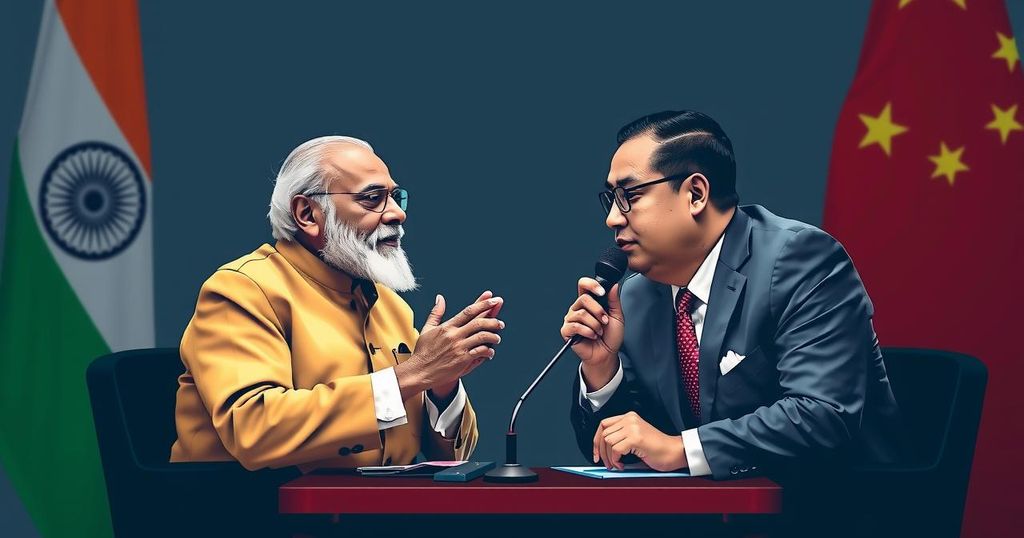Brazil Declines to Endorse China’s Belt and Road Initiative Ahead of Xi’s Visit
Brazil has officially declined to join China’s Belt and Road Initiative ahead of Xi Jinping’s visit, becoming the second BRICS nation, after India, to do so. Brazilian officials have expressed that while they wish to strengthen ties with China, they prefer to explore synergies on a more independent basis. Concerns about immediate benefits and future diplomatic relations with the U.S. have influenced this decision.
Brazil has decided to decline participation in China’s Belt and Road Initiative (BRI), marking it as the second BRICS nation, following India, to reject the multi-billion dollar project. Celso Amorim, Brazil’s special presidential adviser for international affairs, announced this position shortly before Chinese President Xi Jinping’s visit, scheduled for November 20. While Brazil, under President Lula da Silva’s administration, seeks to strengthen its relations with China, it aims to do so independently of the BRI framework. “Brazil does not want to take Chinese infrastructure and trade projects as an insurance policy,” emphasized Amorim. Nevertheless, he indicated that Brazil intends to engage with elements of the Belt and Road framework to discover potential synergies between Brazilian infrastructure projects, striving to align domestic initiatives without formally joining the BRI. Concerns have been echoed by Brazil’s economic and foreign affairs ministries, opposing the decision to join the initiative, given that the BRI does not promise significant immediate benefits for Brazil and could complicate relations with a potentially re-elected Trump administration, given the elections slated for November 5. In discussions prior to the announcement, Amorim visited Beijing, accompanied by Chief of Staff Rui Costa, but returned dissatisfied with the proposals presented by China regarding the initiative. The Belt and Road Initiative represents an ambitious global infrastructure venture advocated by President Xi Jinping, seeking to enhance connectivity across numerous regions worldwide.
The Belt and Road Initiative, launched by China, is a vast global infrastructure development strategy that aims to create trade and infrastructure networks connecting Asia with Europe and Africa along ancient trade routes. It represents a significant aspect of China’s foreign policy under President Xi Jinping, focusing on enhancing global economic cooperation through investment in infrastructure projects. Several countries have participated, but others remain cautious due to concerns over debt and sovereignty, especially in emerging economies. Brazil’s rejection of participation in the BRI highlights the delicate balance it seeks to achieve in its foreign relations while prioritizing its domestic agenda. As Brazil aligns itself with emerging geopolitical shifts, especially with the approaching U.S. elections which could see a return of former President Donald Trump, the implications of entering China’s BRI are scrutinized not only for immediate economic returns but also for long-term diplomatic strategies in the context of U.S.-China competition.
Brazil’s decision to refrain from endorsing China’s Belt and Road Initiative reflects its strategic approach to international relations, as it seeks to foster cooperation with China while maintaining autonomy in its foreign policy. The clear message from Brazilian officials is a preference to explore collaborations without fully committing to China’s framework. The implications of this decision are significant, particularly as Brazil navigates the complexities of global politics, including potential shifts in U.S. administration post-elections.
Original Source: www.business-standard.com








Post Comment